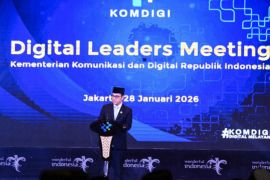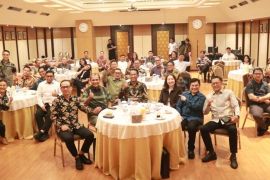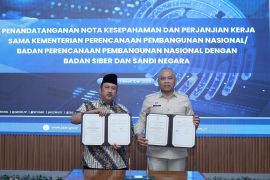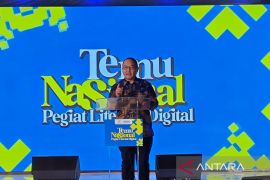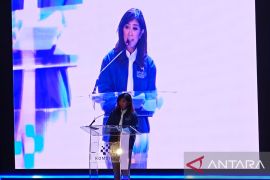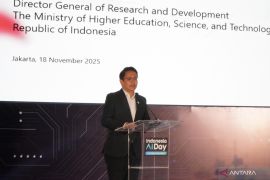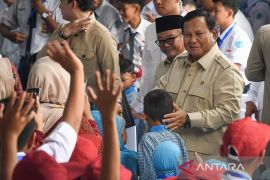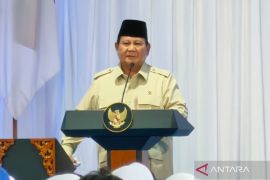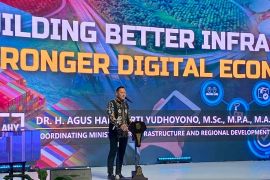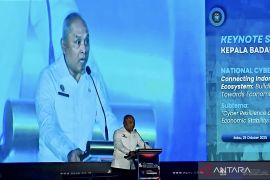Technological advances provide faster and more efficient access to information, creating new ways of communicating, working, and learning.
Currently, smartphones, computers, and the Internet are a primary need for many people. Technology has also become a part of the identity of modern communities.
After all, technology allows humans to complete various tasks more easily and make them more productive. Through technology, humans can create solutions that optimize various aspects of life, including education.
No wonder then that many countries have started to adopt technology-based policies to increase the quality of and access to education.
In Indonesia, the Ministry of Education, Culture, Research, and Technology has launched various programs that encourage the use of technology in the learning and teaching processes.
The adoption of technology in education is not merely about the use of digital devices, but involves a holistic approach to how students learn.
Ki Hadjar Dewantara, an Indonesian educational figure, once said that a teacher must be like a farmer who wishes to grow certain plants.
For example, if a farmer wants to grow rice, then the farmer must ensure using the appropriate rice farming methods, and not those meant for growing other crops such as corn or coffee.
This concept is what the ministry is trying to embody in the digital transformation of national education.
According to Education, Culture, Research, and Technology Minister Nadiem Anwar Makarim, the digital transformation in education is being carried out based on a user-centric design approach.
This approach is considered more effective than the top-down approach in teaching.
Makarim emphasized that educational policies must prioritize a user-centric approach. Because, if a product/policy cannot solve a problem, then no one will trust and use the policy, except by force.
A user-centric approach is also considered to provide more benefits because users who actively use the policies can also provide meaningful inputs for the improvement of the policies.
These inputs can become an iterative process, which can help in changing, adjusting, and editing the policies.
Concrete evidence
Currently, Indonesia ranks 4th in the world in terms of the education ecosystem, with 60 million students and more than 4 million educators spread across more than 400 thousand schools.
At the higher education level, the country has 4,356 universities, more than 32 thousand departments, over 9.8 million students, and 338 thousand lecturers.
To ensure fair and equitable education in the country, which has more than 17 thousand islands, the Ministry of Education, Culture, Research, and Technology has conducted several digital transformation efforts.
One of them is the Merdeka Mengajar (Independent Teaching) platform, which aims to strengthen teachers' capacity. Investment in teachers is essential because teachers are the key foundation for creating strong human resources.
Currently, accessibility is no longer the main issue in teacher training because the platform is designed to be accessed through smartphones.
Therefore, teachers can access various training materials anytime and share experiences with fellow teachers without being limited by time and distance. This has helped boost teachers' participation in training by 7 times compared to 2019.
In addition, the ministry is also investing in the Rapor Pendidikan (Education Report) platform, which is designed as a data development tool for policymaking. It is useful for school principals or local governments to determine the right interventions.
The platform presents data in the form of statistics and graphs, where each school is given a certain classification (low, good, or medium), and provides recommendations for actions that can be taken, both by educational units and by the local government.
To make planning, administration, and schools' procurement processes easier, the ministry has also rolled out the School Activity and Budget Plan Application (ARKAS) and School Procurement Information System (Siplah).
Both platforms automatically generate downloadable and audit-ready financial reports so there is no need for teachers to worry about bookkeeping anymore. This way, teachers can focus more on their main task, which is teaching.
Not only in primary and secondary education, the ministry has also initiated digital transformation at the higher education level, including through the Kampus Merdeka (Independent Campus) program, which helps students gain skillsets that are relevant to the world of work.
The program was created due to the mismatch between human resource skills and the needs of industries. Kampus Merdeka encourages students to gain direct experience through projects and cooperation with industries before they graduate.
The ministry has also initiated relations between universities and industries through the Kedaireka program with a matching-funding concept that supports the development of the innovation ecosystem in Indonesia.
In line with the increasing global innovation index, the program is bolstering Indonesia's contribution at the international stage.
Currently, more than 1.5 million students are registered for the Kampus Merdeka program, which provides them opportunities to participate in internships as well as more than 5,600 research projects with a total funding of US$1.8 billion, provided by the Kediareka program.
These examples of digital transformation in education are part of the Independent Learning spirit, which is interpreted as emancipation in the learning process, where innovation does not come from a closed process, but through a process of dialogue and communication.
The initiatives have been designed to ensure that technology serves as the main enabler of educational transformation in Indonesia and has a direct impact on teachers, students, and all stakeholders in the field of education.
Related news: Ministry pushing educational transformation through digital technology
Related news: Jakarta holds digital training for teachers amid rising AI technology
Translator: Sean Filo, Raka Adji
Editor: Azis Kurmala
Copyright © ANTARA 2024

